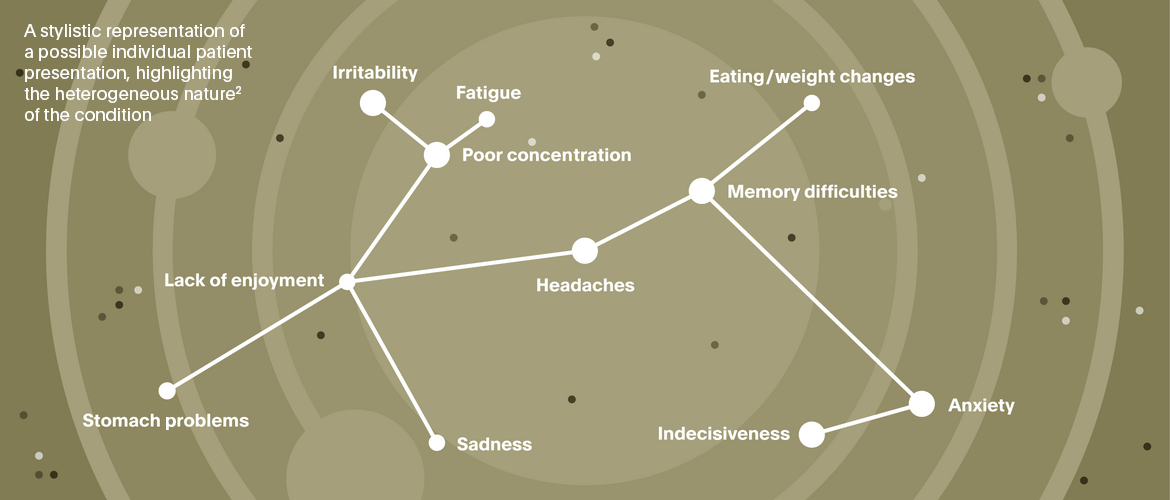


Depression – a constellation of symptoms
Depression is a common mental disorder affecting a large number of patients globally, and having a wider impact on their friends, families, carers and employers.1 It is a clinically heterogeneous condition, with a generally underestimated variety of symptoms spanning emotional, physical and cognitive domains.2,3 Despite becoming increasingly recognised as a significant component of depression in many patients, cognitive symptoms are often poorly understood in clinical practice.2,3
While a patient must present with either depressed mood or anhedonia to be diagnosed with depression, they may also be experiencing any number of the following symptoms to a greater or lesser extent:2

The Diagnostic and Statistical Manual of Mental Disorders covers only a limited range of cognitive symptoms that can be present in patients with depression. Additional cognitive deficits have been reported in depression, including:4–6
Cognition in depression – the facts
Cognitive symptoms can have a devastating impact on patients’ day-to-day lives, and are implicated as a principal mediator of psychosocial impairment and functional disability, particularly with performance at work.7,8
Cognitive deficits in depression are a principal mediator of functional disability, notably impaired workplace performance.5,8
Cognitive symptoms can often persist beyond the cessation of emotional manifestations like sadness, anxiety and anhedonia:2
There is also a direct link between cognitive symptoms and risk of relapse, with one study showing that more than 75% of patients with residual cognitive symptoms relapsed within 10 months of achieving remission.11 This highlights the importance of recognising and monitoring the full constellation of emotional, physical and cognitive symptoms in your patients with depression.